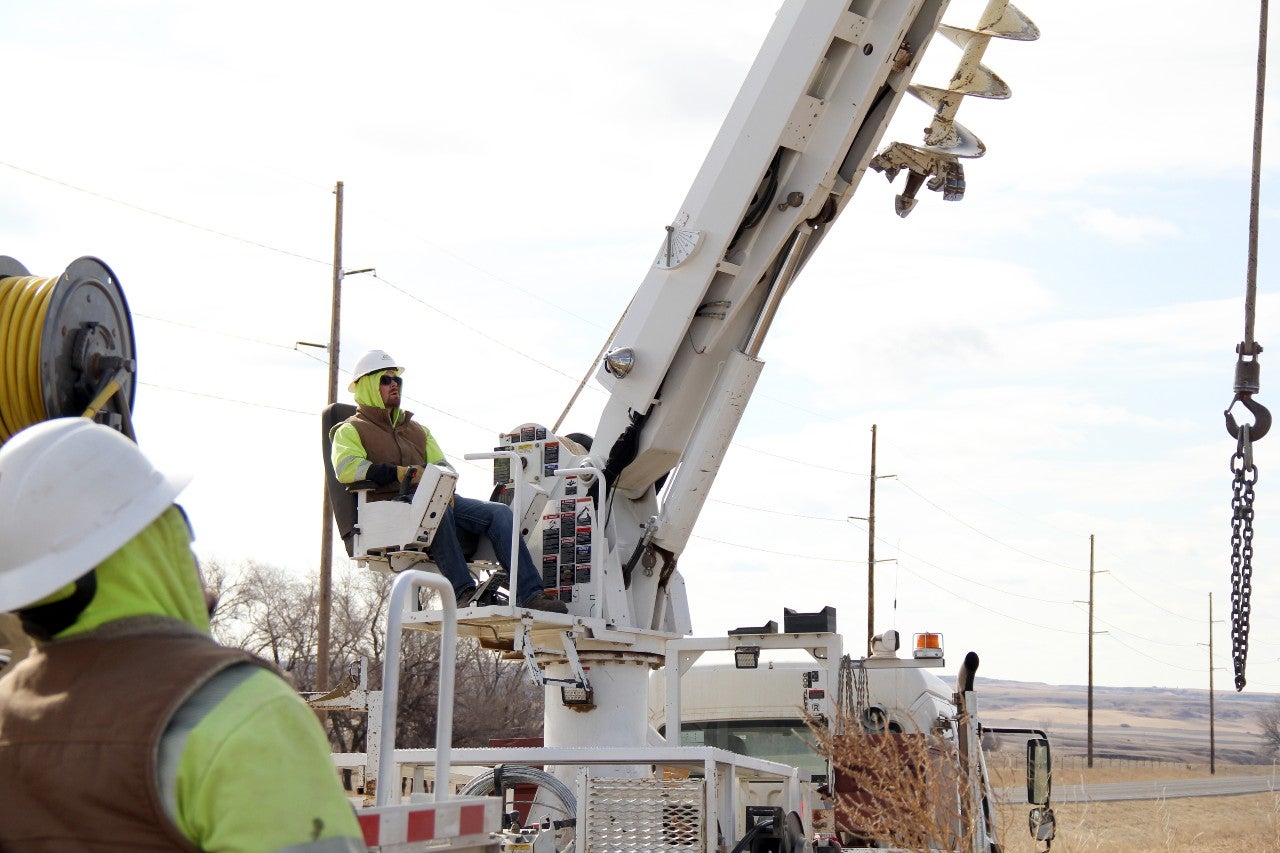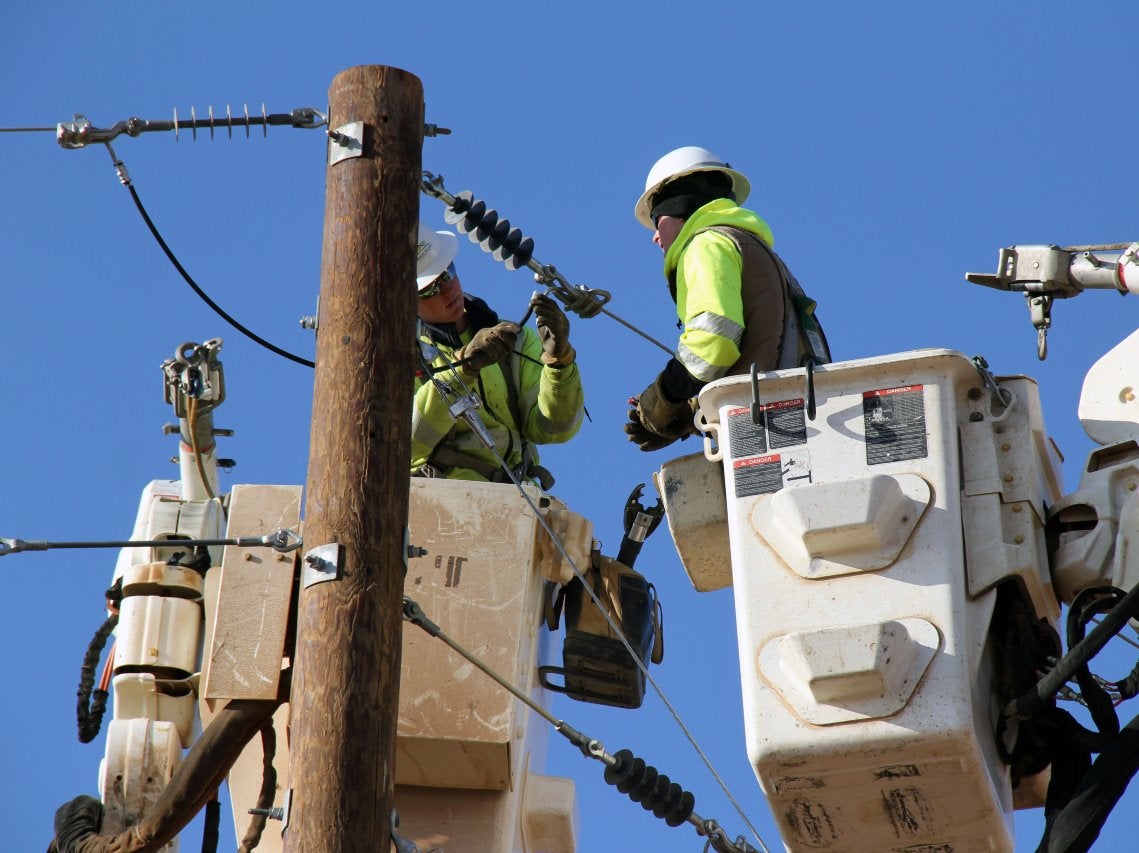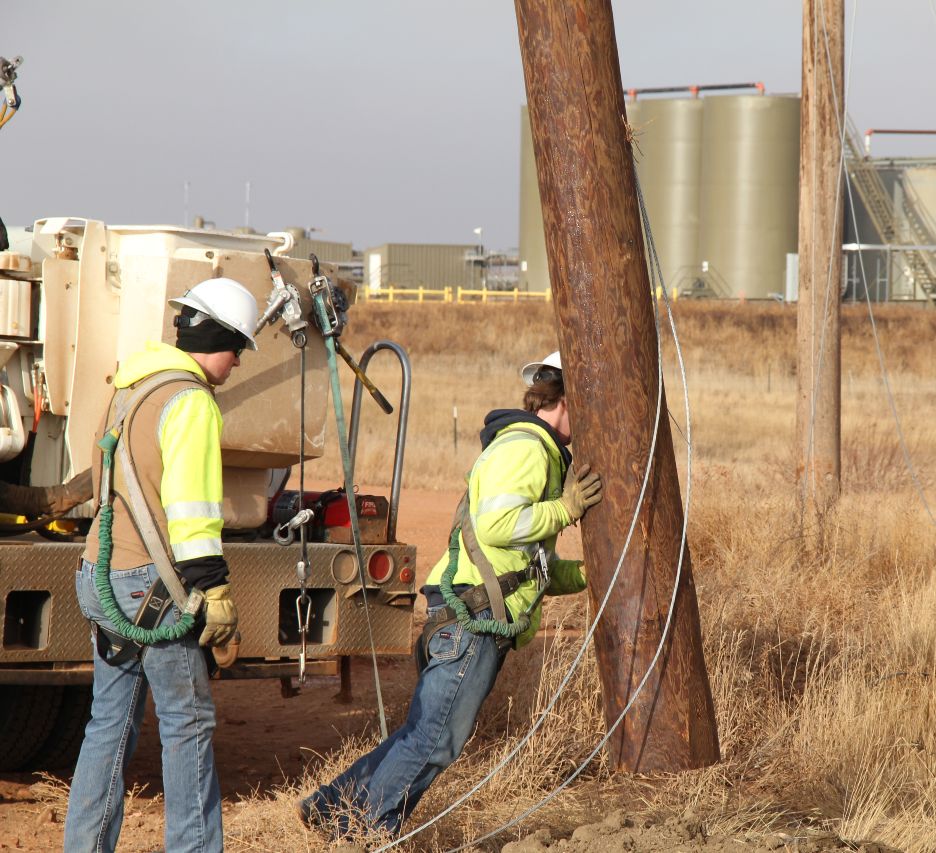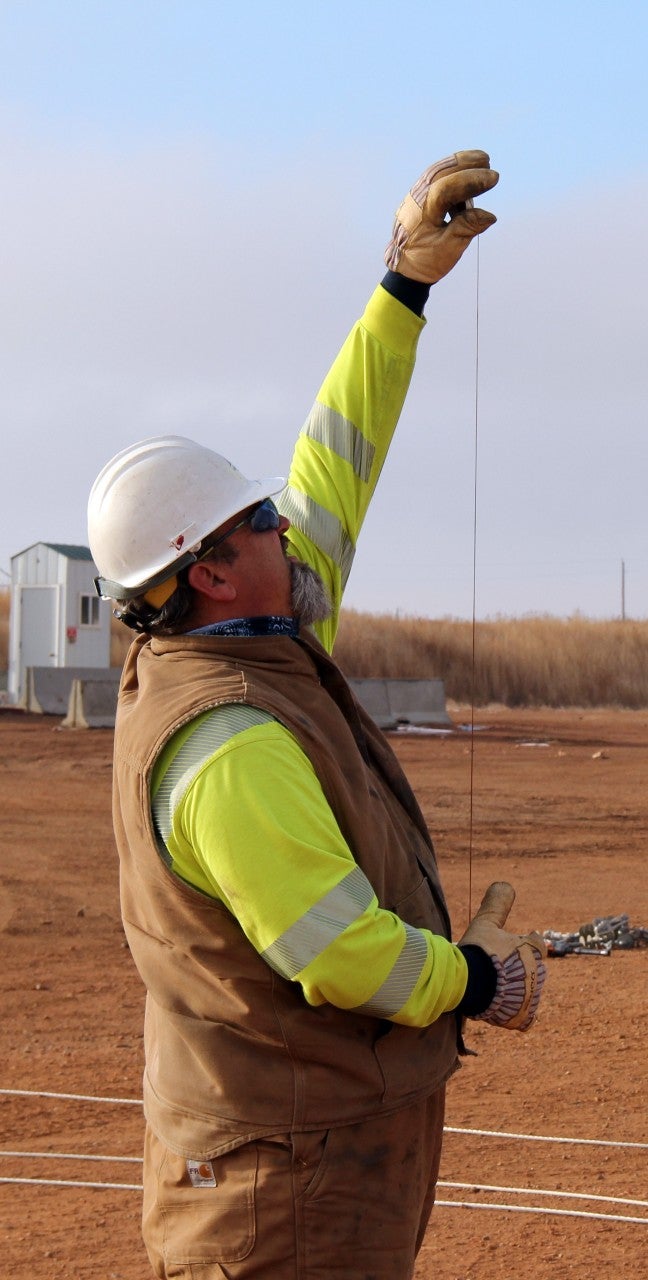Keeping The Lights On - Stories and sentiments from the front lines
By Jessie Veeder Scofield
 To be a lineworker in North Dakota is being committed to doing everything you can to “keep the lights on” in some of the most extreme weather in the country.
To be a lineworker in North Dakota is being committed to doing everything you can to “keep the lights on” in some of the most extreme weather in the country.
“We get everything. From fire to ice. Wind to hail. It’s a total weather experience,” says Rick Pokrzywinksi, Line Technician/Data Collector. In his thirty-five years with McKenzie Electric, there’s not much Pokrzywinksi hasn’t experienced. Raised in Grand Forks, as a young man he took a chance on Western North Dakota during the oil boom in the early 80s and he fell in love with the area. After almost five years in the oil industry, he followed his friend’s advice and left a stacked-out rig for a spot in lineworker school in Bismarck.
“I loved Watford City and I loved the country,” remembers Pokrzywinksi who was offered jobs in the Minneapolis area after lineworker school. “I said no. I thought I’d take a chance here.”
That chance was a part-time job with McKenzie Electric in 1985, one that turned into a full-time position in a matter of months. And the rest is a history that has taken Pokrzywinksi across McKenzie Electric’s service area building out power lines and systems at the tail end of the 80s oil boom to tearing them out during the slowdown, to layoffs, and then into another boom that nearly tripled their capacity and saw a community entirely changed.
And through it all what has kept Pokrzywinksi going, through forty below temperatures or forty-mile-an-hour winds is the same thing that seems to pump through the blood of all of the lineworkers on his team—the gratifying feeling he gets when he restores power for the members he works to serve every day.
“There’s not many places where I pull into the yard and I don’t know the people there,” he said.
The generations
It’s a sentiment that Steve Lautenschlager, Contract Manager shares. Having grown up watching his father and his uncle work as linemen, Lautenschlager knew at a young age that he wanted to follow the same career path.
“It’s always been about getting the lights back on,” he said. “That’s my job and I felt glad that I could perform my job. I chose this profession and I had a good idea of what it was going to take from watching as a little kid.”
And it turns out Lautenschlager’s son Tyler was also learning at a young age about the important work his dad was doing. When Tyler was asked what his dad did for a living during an elementary school lesson, Tyler responded, “He changes people’s light bulbs.”
That was a few years before Tyler started to understand that keeping the lights on meant that his dad had to miss his ninth birthday party, or leave during the middle of a Thanksgiving dinner, or travel out in storms so extreme that it was all too easy to lose sight of the white lines on the highway.
“I remember one time me and Maury Pederson were in a storm and Maury had his head out the passenger side window and said ‘you’re doing good, I can see the white line!’ But we were in the ditch and it was the wrong side of the road,” Lautenschlager laughed.
Lautenschlager acknowledges that the treacherous weather is something he signed up for, but throughout the years the updates in equipment and communication has made the job much easier. From more reliable bucket trucks to the use of GPS and cell phones to more quickly respond to calls, every day the changes are making the experience better and more efficient for both the linemen and the member.
“If I was on call for the week, it had my house phone number listed. And when I got home Brenda (his wife) would have a list of people who called the house and said they were out of power,” Lautenschlager recalls. And if he missed anyone on the list, he would have to head back to the shop, call his partner and go back out.
It’s all about the member
 For Steve, it’s all about the members he serves. He recalls fondly, as a young lineworker, going out to farms and ranches and staying for a visit. “You might as well plan on walking in and having a cup of coffee. I’ve never ordered a cup of coffee in my life in a café, I don’t drink coffee, but I’ve sat at many a kitchen table and choked down a cup of coffee and had a roll with them. And that’s a lot of fun.”
For Steve, it’s all about the members he serves. He recalls fondly, as a young lineworker, going out to farms and ranches and staying for a visit. “You might as well plan on walking in and having a cup of coffee. I’ve never ordered a cup of coffee in my life in a café, I don’t drink coffee, but I’ve sat at many a kitchen table and choked down a cup of coffee and had a roll with them. And that’s a lot of fun.”
The relationship with the member is an important piece of the job that has carried through to the next generation at McKenzie Electric. That example was set for Hayes Feilmeier when he was a teenager working as a Co-op Work Experience (CWE) student with McKenzie Electric on maintenance trucks during his senior year at Watford City High School. His interest in the field was sparked in a school shop class where he learned how to wire a light bulb. Fast forward nine years and Feilmeier has found himself in a new role as a Lead Lineworker, a career that meets the goals he had as a young student looking to the future.
“I enjoy being outside and I like challenges and figuring things out,” Feilmeier said.
And Feilmeier, a local ranch kid who was hired at the height of the boom, is proud of the way the community has grown and appreciates seeing the families who have been able to stay on local ranches and those who were able to come back home again.
“It’s a cool thing to be out there when people need you and depend on you to keep their power on. That’s kind of a rewarding thing for me.”
Like Feilmeier, Journeyman Lineworker Eric Hellandsaas, who began with McKenzie Electric full time in 2017, found that this line of work checked all the career boxes for him as well as he sought a career that would get him outside and connected with the rural community.
“I wanted to get out on my own and see the landscape, and boy have I ever,” said Hellandsaas. “I had no clue how big our county is. After a two-and-a-half-hour drive from Watford City to the edge of Montana, I can’t believe we’re still in McKenzie County!” Pair all those miles with the rugged and remote landscape, in Hellandsaas’ career he has truly found himself humbled by Mother Nature. From a tornado in Halliday that broke 28 transmission poles like toothpicks to a snow and windstorm near Charleson that made it nearly impossible to keep the lines clear, Hellandsaas is fueled by the same mission and challenges as his coworkers—to serve the members.
 Just part of the job
Just part of the job
Even and especially in the brutal weather that North Dakota is known for, the kind of weather that seems to stick in the memories of journeymen lineworkers like Denby Lueck, who loves what the Western North Dakota landscape offers for fishing and hunting, and understands, like his colleagues, that in order for rural communities to comfortably exist here in the modern age it means that sometimes he needs to work eleven days straight with one hundred hours of overtime to repair damage from a summer wind storm.
Even if, as Pokrzywinksi recalls, it means staying up all night making plans to save a co-worker stranded in an outbuilding during a winter storm.
The stories and sacrifices pile up like winter drifts for these lineworkers in rural northwest North Dakota. And from a 40 year veteran with years of experience under his belt to a young lineman just starting out, you’ll find they also share a common phrase— “It’s just part of the job.”
“At the end of the day, it’s the member who remembers what you’ve done for them,” says Lautenschlager who, like Pokrzywinksi fondly looks back at a rewarding and challenging career and is proud to help the next generation continue the important work of powering the plains.
“We’re set up for the future now, said Pokrzywinksi. “It’s looking bright.”
As bright as the lights they keep on.
